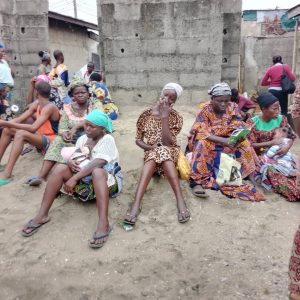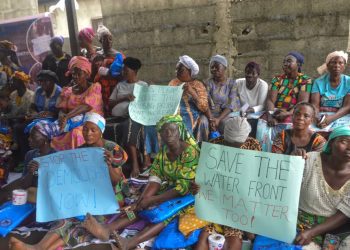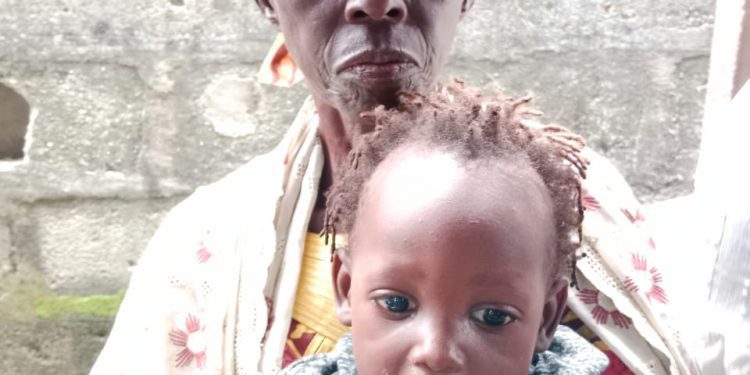By Betty Abah
Alice Oluwasegun, a widow and petty trader, sat among about 150 other forlon community folks August 1, the world seemingly crashing around her. Her house was among more than two thousand homes razed down by the armed and rampaging task force officials sent into her community in the Oworosoki area by the Lagos State Government last week.
Unlike the stipulated line of procedure, the state government did not give them adequate notice or provide any sort of succour– sending thousands into the harsh street at the peak of the rainy season and an unprecedented economic depression which has spiked nationwide protests in recent times.
“We had no single notice,” said Mama Olwasegun, trying in vain to rock her wailing two-year-old grandson, son of her late daughter. “If they had warned us, we would left our houses with our things. They demolished my house last week Tuesday around 3pm. They came suddenly and set the house on fire, I was only able to gather the clothes that I and my grandchildren would wear before fleeing. We have been sleeping at a nearby church and feeding on the food that good-spirited individuals give us since then.”
“I have lived in this community for more than 30 years. I am a widow, caring for four of my grandchildren singlehandedly. I am a petty trader and my goods were also destroyed alongside my house. The government should please assist us with a place to stay,’ she said teary-eyed.
Many others at the community consultation and relief outreach by CEE-HOPE on August 1 had horror stories to tell. Many came to the meeting from makeshift shanties and church buildings around the area where they had been staying put since being thrown out of where they had called homes for several years, many for decades.

Informal communities within Oworosoki including Mosafejo, Idi-Araba, Olubori and Precious Seed were affected in the new wave of massive forced evictions which has become an annual ritual with the Lagos State Government which would rather cause wildspread homelessness among its most vulnerable citizens than face acute housing deficit problem (communities including Maroko, Otodo-Gbame, Makoko, Badia East, Monkey Village, Ifelodun etc had felt the hammer in the past). The occasional housing estates built are priced way beyond the reach of the majority poor and constant calls for provision of low-cost housing projects and or the upgrading of its ubiquitous informal communities as is now a global practice are tacitly ignored, yet the demolitions go on, and yet the APC-controlled state get a lion share of its electoral votes from these communities every four year with repeated sugar-coated promise of a better life including housing upgrades to hapless urban poor. Lagos’ idea of a mega city and the planning thereof has no place or patience for the poor who incidentally comprise more than 70% of its populace.
The latest demolition stems from the quest of the state government to build a jetty and an elite housing estate project. In the course of the demolition however, both the communities which received a seven-day notice and those which didn’t get anything at all had their houses razed down in an exercise spanning several days overseen with heavily armed policemen. Effectively, the demolition extended beyond the mapped area. There were also allegations of the panicky residents being forced to pay the task force personnel some money to be allowed to retrieve their properties.

In response to the widespread backlash from the exercise however, Lagos State Government has come up with allegations to typically tag the evictees ‘criminals.’ A spokesperson of the state government claimed in a series of tweets that the exercise accrued from the fact that the communities were ‘criminal hideouts’.
Most likely the eloquent spokesperson forgot that Evans, the biggest kidnapper in Nigeria’s history didn’t ‘hide’ in Oworosokin or in any of the ‘slums’ but in one of Lagos’ most elitist estates, Magodo. He also forgot that the world is too discerning to buy such jaundiced narrative.
Abah is a Lagos-based writer activist and founder of the child’s rights NGO, CEE-HOPE.

